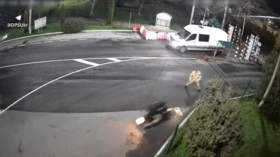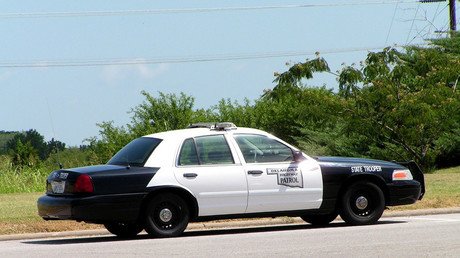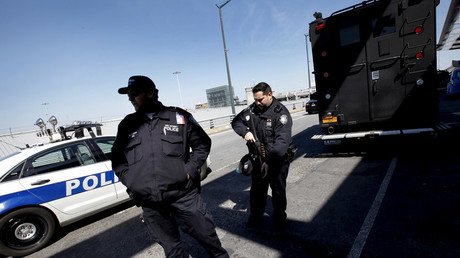US gives back innocent man his $11k after seizing it at airport

Authorities at a Kentucky airport confiscated the life savings of student Charles Clarke in early 2014 on an unverified suspicion that the cash was connected to illicit drug sales. Now, the US has settled with Clarke, returning his $11,000 with interest.
Clarke was a 24-year-old college student headed to Florida in February 2014 when a ticketing agent at the Cincinnati/Northern Kentucky International Airport told police that that his luggage smelled like marijuana. An airport detective, a US Drug Enforcement Agency (DEA) agent, and a drug-sniffing dog searched Clarke's belongings, finding nothing illegal on him or in his bags.
Despite that, DEA Agent William Conrad and Detective Christopher Boyd seized the $11,000 in cash that Clarke was carrying – savings he had collected to pay for college – “upon probable cause that it was proceeds of drug trafficking or was intended to be used in an illegal drug transaction,” according to Conrad's report of the incident.
Clarke insisted he'd never dealt drugs, and his case was taken up pro bono by the civil liberties nonprofit Institute for Justice (IJ) in 2015. "Civil forfeiture allows law enforcement officials to keep the money they seize, which encourages them to target ordinary citizens like Charles,” IJ attorney Renée Flaherty said at the time. Clarke was never charged with a crime throughout the entire legal battle.
On Tuesday, IJ announced that the US had settled with Clarke in the case, giving back the $11,000 with interest, though no compensatory damages were offered.
"Charles is very pleased that he will get his life savings back and that the whole ordeal is now behind him," IJ attorney Darpana Sheth said in a press release.
Clarke's case became a classic example of punitive civil asset forfeiture policies in the US. Department of Justice (DOJ) data reviewed by IJ indicates that law enforcement officials across the US seized $6.8 billion in cash and property between 2008 and 2013 alone. In addition, a federal program known as "equitable sharing" allows state and local law enforcement agencies to share seized funds. In the case of Clarke's $11,000, IJ said in June 2015 that 13 different Kentucky and Ohio policing agencies sought a cut of the funds.
The FBI maintains that asset forfeiture helps law enforcement reduce the "incentive for illegal conduct…[and] takes the profit out of crime by helping to eliminate the ability of the offender to command resources necessary to continue illegal activities." The controversial practice allows police to seize and keep cash and property from people who have never been convicted, and in many cases, never charged with wrongdoing under federal rather than state law. Under the federal law, police departments can keep up to 80 percent of the assets they seize.
Upon increasing criticism of civil asset forfeiture – and the near impossibility many face in attempts to retrieve their belongings even if they were not charged with a crime – the DOJ announced modest reforms, including seizure limits. In December 2015, the DOJ issued a temporary suspension of equitable sharing, but then lifted the suspension in March 2016.
In September, the New York Police Department, the largest municipal police force in the US, admitted that accurate accounting of it civil asset forfeiture holdings in New York City is, essentially, impossible. The city was sued in federal court early in 2016 over its civil-forfeiture process. The lawsuit, which has now reached class-action status, claims that the NYPD's failure to return items it has seized related to cases that have been terminated is a violation of constitutional rights.
Last month, the American Civil Liberties Union of Illinois reported that between 2005 and 2014, Illinois and federal law enforcement seized a total of about $725 million from the state's residents who were only suspected of committing a crime.
















